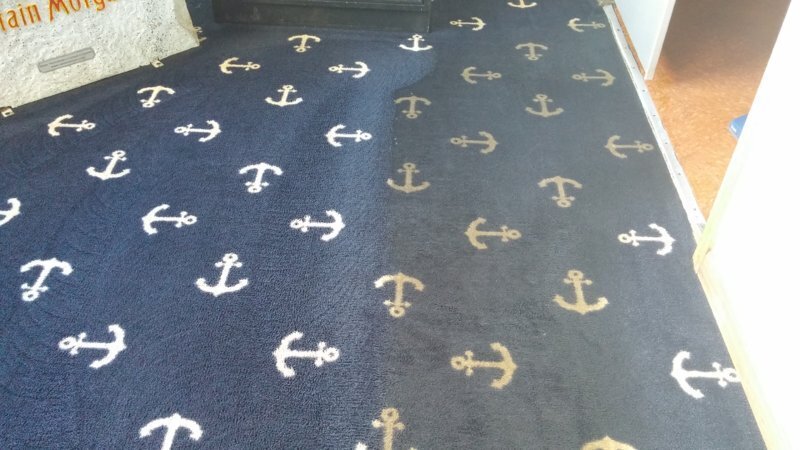There is no "right" answer to the question of what to use through your extraction system.
Clear Water. If you run clear water, it's far better if its soft water. If you are dealing with a lot of pre-existing residue, you might find the results impressive even if you don't prespray much or at all. In line filters or "windows" in your cleaning tool will show you the amazing amount of residue that can be found in a carpet that appears not to have much, or any, residue.
..even ones you may have been cleaning previously
 Acid Rinse.
Acid Rinse. Too many in our industry insist on believing that just spraying an acid treatment on a carpet after cleaning it with an alkaline cleaner removes residue. That step only neutralizes the pH of any existing detergents, but the surfactant (the stuff that could attract soil) remains. So if your acid treatment contains a surfactant too, then you just doubled your residue.
Neutralization isn't necessary on most synthetic fibers, but is beneficial on natural fiber carpets, rugs, and upholstery. That neutralization is better provided by using it in the extraction step, or applying THEN rinsing. Otherwise what you gain by dropping the pH you can negate somewhat by adding more unextracted water (which can contribute to bleeding in of itself) or residues that contribute to resoiling, a sticky or rough feel (especially on soft textured fabrics). Sometimes leaving an excessive amount of surfactant (regardless of the pH) can also contribute to color bleeding.
Running an acid through your machine may help rinse better than just water, and the presence of an acid does make the dyes in nylon and wool "pop". Acetic acid (vinegar) will help water rinse somewhat better. Usually its used in helping to stabilize the dyes in area rugs or to remove urine residues where the massive volume of water used in such application creates a need for very inexpensive acid to be used. The odor "in plant" is far easier to cope with than in a home of course.
Alkaline "Rinse": Running an alkaline detergent through your machine helps to attack remaining fatty or oily residues that traffic lane presprays may not have completely suspended. These products, when properly diluted, should not contribute to residue problems. Some of the "soap free/surfactant free/detergent free" type products do help to remove fatty and oily soils, and interestingly also help to remove pre-existing detergent residues by acting on the surfactants themselves and help them to be better rinsed away.







